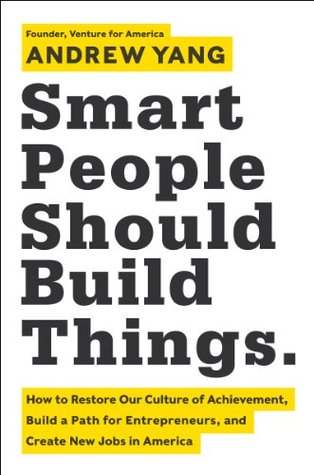More on this book
Community
Kindle Notes & Highlights
by
Andrew Yang
Read between
April 18 - April 19, 2020
The growth in professional services has given rise to an accompanying set of recruitment pipelines only in the past several decades. Yet the allocation of talent is a zero-sum game. If the academically gifted are funneled in higher numbers toward finance and consulting, then lesser numbers are going into other areas, such as the operation of companies, startups, and early-stage enterprises.
I met a woman who was completing her PhD in biology at Harvard. She mentioned that the only two firms that actively recruited from her program were not pharmaceutical companies or biotech startups; instead, they were the two leading consulting firms, McKinsey and Company and the Boston Consulting Group. The new highest use of a PhD in biology is not to be in the lab; it is to conduct analyses of large drug companies.
There is literally a Goldman Sachs Room in Columbia’s career services office where students go for information sessions. And it would be completely unrealistic for a university to limit the private companies that are coming to campus to offer their graduates high-salaried jobs; for many, that’s the whole point of attending the school.
Evan and Chris, along with technologist Hilary Mason, started hackNY in 2010 to place promising programmers at New York–based startups; its declared mission is “to keep kids off the Street.”
How do we increase the odds of individuals taking on the challenges of starting or working at a new business? We are growing increasingly reliant upon outliers, people who are intrinsically superenterprising and relatively ignorant of economic incentives. And many of the people who would have the most to offer as a founder or inventor simply have other more directly appealing options.
If you work in professional services you will be paid handsomely and have a brand-name firm on your résumé. You’ll gain skills, confidence, and exposure. But you may also become heavily socialized and specialized, more risk averse, and accustomed to operating in resource-rich environments with a narrow set of deliverables. You’ll be likely to adopt an arm’s-length relationship with your work. You won’t build anything; instead, you will compartmentalize and put the armor on each day as deals, clients, and colleagues come and go.
We’re breeding large battalions of indifferent professionals in a handful of cities when what we need is something very different. We need committed builders.
Dan Senor and Saul Singer’s book Start-up Nation,
I sometimes compare starting a business to having a child. You have a moment of profound inspiration, followed by months of thankless hard work and waking up in the middle of the night.* People focus way too much on the inspiration, but, like conception, having a good idea isn’t much of an accomplishment. You need the action and follow-through, which involves the right people, know-how, money, resources, and years of hard work.
“Entrepreneurship is living a few years of your life like most people won’t, so that you can spend the rest of your life like most people can’t.”
Value creation has a polar opposite: rent-seeking.
Which would you rather have, better arms dealers or better fighters? And which should our young people want to be? Personally, I always dreamed about going into the woods and fighting the dragon, not selling the guy a sword.
We’d all gotten in the habit of building things. Sometimes you’re the founder, sometimes you’re a team member, and sometimes you’re just in the vicinity and scheming. But once you become a builder, it’s hard to let go.
My career is a choice that indicates my values. There is no courage without risk. Value creation is how I measure achievement. I will create opportunities for myself and others. I will act with integrity in all things.
The Dalai Lama, when asked what surprised him most about humanity, wisely responded, “Man, because he sacrifices his health in order to make money. Then he sacrifices money to recuperate his health. And then he is so anxious about the future that he does not enjoy the present; the result being that he does not live in the present or the future; he lives as if he is never going to die, and then dies having never really lived.”
I see my professional pursuits and my career as a moral choice that indicates my values. • I appreciate those who assume personal risks in order to build a company or pursue a common good. • I believe that actions are the proper measure of one’s accomplishments. • I believe that creating value and opportunities for myself and others is an important aspect of professional success. • I believe that one’s professional conduct is a reflection of personal character, and will always strive to act accordingly.


